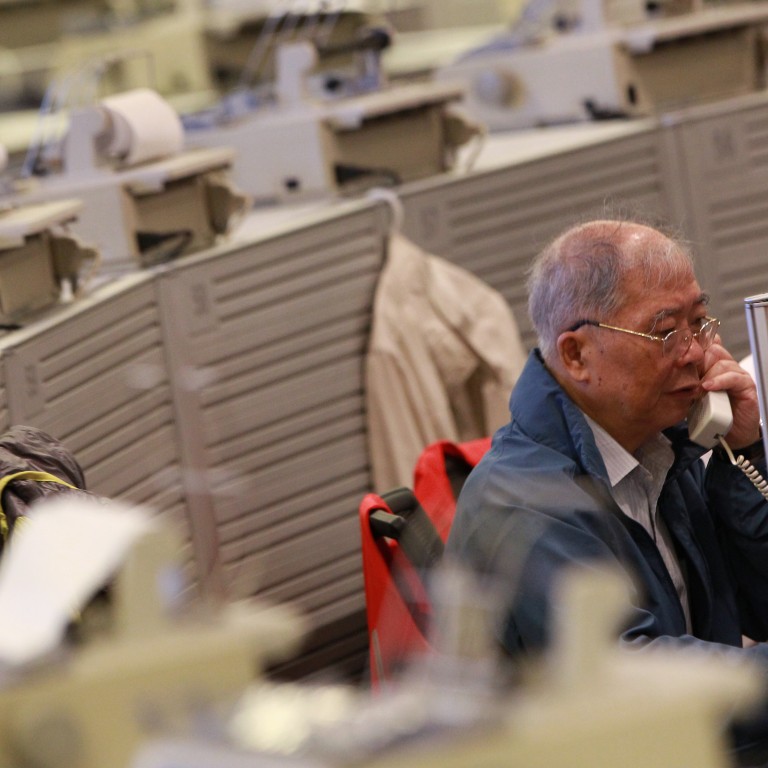
Hong Kong Finance Secretary ‘ill-informed’ on financial market fundamentals
Sometimes I worry about the Financial Secretary John Tsang Chun-wah who has surely been long enough in the job to understand the fundamentals of financial markets yet he still manages to catch the breath by making staggeringly ill-informed comments about their place in the economy.
Recently, he made well publicized remarks about the likelihood of the stock market falling if the government’s electoral reforms are not passed in the legislature. I had hoped that this concern over share prices was an aberration but, alas, it is not as Tsang has form in being in overly concerned by the movement of share prices.
Tsang, like many bureaucrats, is considerably more in awe of stock markets than the people who run listed companies or indeed the folk who make a living buying and selling shares.
They understand that share prices are a reflection of many things ranging from collective madness to indications of confidence or despair and, sometimes, they acutely reflect the underlying value of companies that are listed on these markets.
And here’s the rub because shares that are already in the market represent capital raised, usually some considerable time ago. New issues can also add to the capital of previously listed counters but once the stocks are out there and being traded they have absolutely no affect on the amount of capital at a company’s disposal, unless the directors are foolhardy enough to offer shares in their possession as security for loan raising.
Therefore if the shares of Ever Wonderful Investments Corp soar from HK$10 to HK$100, Ever Wonderful will not have access to a single dollar of new money to finance its business.
Sensible directors of listed companies therefore spend very little time scrutinizing their company’s share price because they have better things to do, namely running the business.
I learnt this lesson rather uncomfortably as a cub reporter on London’s Investors Chronicle when I was dispatched to interview the chairman of a company that had turned in some rather mundane results and was the subject of the usual chatter among the investment community.
Confident that I could make a decent story out of this interview I scuttled along to this grand man’s office and asked him about the fall in the share price. ‘Is it falling?’ he asked. ‘Surely you must know that it is,’ was my Smart Alec reply. “And why would I want to know’, he sniffed. ‘Well’, I spluttered, ‘it means that the City is loosing confidence in your company’.
He did not immediately respond and I was feeling rather pleased with myself. He then looked at me in that way grand people have of looking at you when they sense inferiority and said, ‘and what, exactly, is your point?’ I was preparing a reply when I fortunately had the good sense to appreciate that this was a rhetorical question.
‘Are you implying that my company should be donning widow’s weeds because of what can, at best, be described as a fluctuation in the share price?’ Another pause, ‘or are you saying that because a sell order has been placed for our shares we are in some way producing less, losing customers or indeed likely to lose more in future?’
‘Surely’, I said nervously, ‘that is precisely the point’. He sniffed, ‘do you know how many times our share price changes in a single day?’ No, I didn’t and it turned out that neither did he because, as he explained, ‘I don’t know because it is irrelevant but if you want to know about my order book or borrowings or indeed our current margins, I can tell you that off the top of my head’.
My fondly imagined incisive interview was turning into a tutorial. And, by the way, the share price rose the following day although the figures that mattered were exactly the same as they had been the day before except that the shares were deemed to be, as the market likes to say, ‘oversold’.
The market works in wondrous ways, some of which are connected to economic reality but all too often not. For example, the London stock market saw a healthy surge of over 2 per cent when the Conservative government’s election victory was confirmed last Friday; when the market reopened the following Monday the index slumped back.
What did that tell us about the underlying strength of the companies included in this index? The answer is more or less nothing, aside from the rather obvious fact that most of the people who move share prices tend to be Tories who greeted the news with relish.
Meanwhile here in Hong Kong we have a rather more volatile stock market, which, like its counterparts, is often swayed by political news. Hopefully Tsang will start to understand that this means very little indeed.

